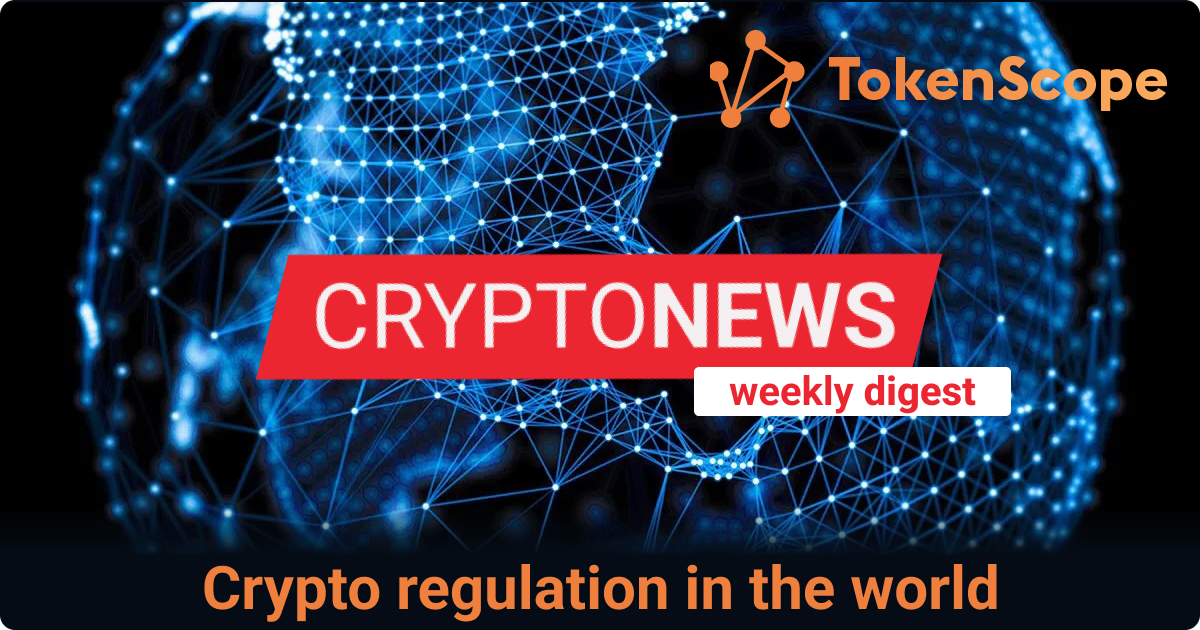Crypto regulation in the world: weekly digest #87

The UAE
The Dubai International Financial Centre (DIFC) has enacted a new Digital Assets Law and a Law of Security, aiming to revolutionize the legal landscape surrounding digital assets within the financial center. These legislative changes are designed to keep pace with the rapid developments in international trade and financial markets, providing legal certainty for investors and users of digital assets like cryptocurrencies, NFTs, stablecoins, and security tokens.
The Digital Assets Law sets out the legal characteristics of digital assets, defining their proprietary nature, how they can be controlled, transferred, and dealt with by interested parties. This law establishes a comprehensive framework for regulating virtual assets, ensuring clarity on their legal status and interactions within the DIFC jurisdiction. By defining digital assets as intangible property and emphasizing control as the basis for ownership, the law seeks to bring certainty and protection to digital asset owners against wrongful interference or impairment by third parties.
In conjunction with the Digital Assets Law goes the Law of Security regime modeled on the UNCITRAL Model on Secured Transactions, tailored to address specific factors relevant to the DIFC jurisdiction. This enhanced law aims to align the DIFC's securities regime with international best practices, providing clarity on taking security over digital assets and digitizing international trade transactions. The proposed changes in the Law of Security reflect the DIFC's commitment to maintaining a transparent and robust legal framework that caters to the evolving needs of digital assets within the financial center.
The EU
The European Parliament has approved new rules aimed at harmonizing the enforcement of EU sanctions across member states, with a strong focus on cracking down on violations. The directive introduces common definitions and minimum penalties for violations, ensuring a more consistent approach to enforcing sanctions.
The legislation also addresses transactions involving cryptocurrencies and digital wallets, establishing uniform definitions for violations related to crypto-assets. These violations include failing to freeze funds, disregarding travel bans or arms embargoes, transferring funds to sanctioned individuals, or engaging with state-owned enterprises of sanctioned countries. Additionally, the law clarifies that all transactions prohibited in the regulations are also prohibited if carried out in crypto-assets, emphasizing that crypto-assets should not be used to circumvent any EU sanctions.
The law also defines and criminalizes the circumvention of sanctions, such as concealing frozen funds, hiding property ownership, or not reporting essential information. Violating or circumventing sanctions can lead to prison sentences of up to five years in all member states, with judges empowered to issue dissuasive fines for companies involved in violations.
The law is yet to be formally approved by the Council before becoming enforceable. Once published in the Official Journal of the EU, member states will have one year to transpose it into national legislation.
The UK
The UK's Financial Conduct Authority (FCA) has approved the launch of crypto-backed exchange-traded notes (ETNs) for professional investors. These ETNs will be available to investment firms and credit institutions authorized to operate in financial markets, while retail investors remain banned from trading these products. The FCA emphasizes that crypto assets are high-risk and largely unregulated, warning investors that they should be prepared to lose all their money. The FCA's decision aligns with efforts to protect consumers and ensure orderly trading in the crypto market, reflecting a broader trend towards institutionalization in cryptocurrency markets.
ETNs are similar to Exchange-Traded Funds (ETFs) in that both are designed to mirror the investments tracked by an index or other benchmark. However, there are key differences between the two. When investing in an ETF, you are buying shares of a fund that holds the assets it tracks, while an ETN is more like a bond - it is an unsecured debt note issued by an institution.
To list cETNs in the UK, exchanges must adhere to specific requirements set by the FCA. These requirements include ensuring that cETNs meet all the criteria of the UK Listing Regime, such as prospectus and ongoing disclosure obligations. Exchanges must also maintain sufficient controls to guarantee orderly trading and provide adequate protection for professional investors, like investment firms and credit institutions authorized to operate in financial markets. The FCA emphasizes that cETNs and crypto derivatives are deemed unsuitable for retail consumers due to the risks involved, hence the ban on selling these products to retail investors remains in place.
News from other countries:
-
Russia recently signed a new law allowing the use of digital assets for foreign trade payments. This law permits the use of digital financial assets (DFAs) in international transactions, providing a legal framework for the use of tokenized financial assets, including commodities and structured products, for cross-border payments. The DFA’s are not cryptocurrencies and are being issued only using private blockchains by entities regulated by Russian Central Bank.
-
Hong Kong has started a regulatory sandbox for stablecoin issuers, allowing for a controlled environment where market participants can interact with regulators as new requirements are implemented. This sandbox approach aims to facilitate the observation of stablecoins within the regulatory framework set by the Hong Kong Monetary Authority (HKMA).




